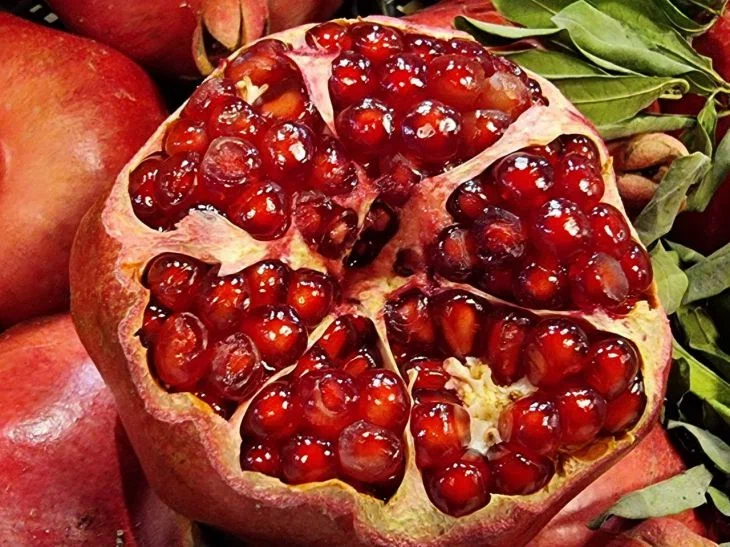Pomegranate is a fruit that is certainly tasty and healthy, but how to eat it correctly is still not entirely clear.
Some people eat pomegranates with the seeds, while others are in no hurry to swallow them. Who is doing the right thing?
According to experts, if you do not separate the pomegranate pulp from the seeds, then the body will receive more antioxidants. These substances resist oxidative stress, reduce inflammation and protect cells from damage.
Antioxidants contained in pomegranates, in addition to everything else, fight free radicals and improve the condition of the skin. If you regularly enjoy this fruit (with the seeds), after some time you will notice that the skin looks younger and velvety, and wrinkles, sunburn and inflammation appear on it much less often.
Eating pomegranate also reduces the risk of developing chronic diseases, including diabetes and heart and vascular disease.

Pomegranate has a special effect on the heart. It reduces the level of "bad" cholesterol, normalizes blood pressure and strengthens blood vessels.
Pomegranate seeds are also good for digestion. They contain a lot of fiber, which improves intestinal peristalsis and maintains healthy microflora.
Experts say that one of the main benefits of eating pomegranate with seeds is its antitumor properties. Pomegranate contains vitamins C and K, folic and ellagic acids, and anthocyanins. These substances promote apoptosis, the process of destroying damaged and potentially dangerous cells.
That's all, actually: there will certainly be health consequences from eating pomegranate seeds, but they will be positive.








